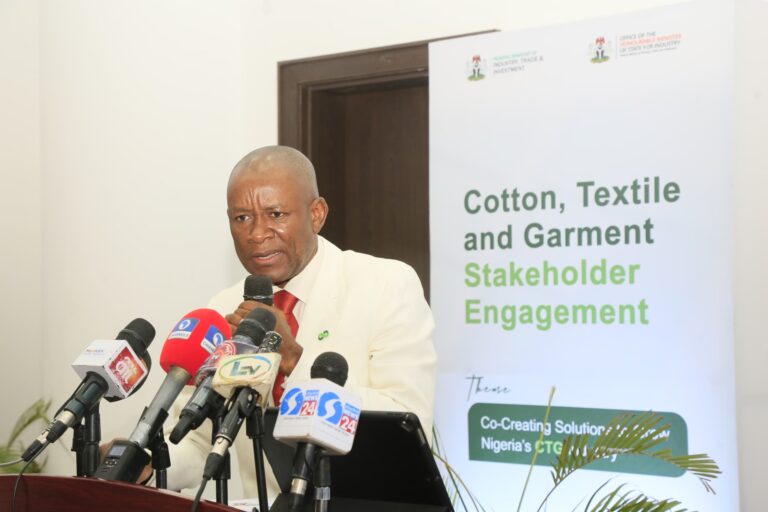In a bold move to reinvigorate Nigeria’s industrial base, the Federal Government has reaffirmed its commitment to restoring private sector confidence, reviving struggling industries, and accelerating job creation across the country.
This renewed drive was announced by the Minister of State for Industry, Trade and Investment, Senator John Owan Enoh, during a high-level technical session in Lagos. Themed “From Activities to Outcomes: Driving Industrial Renaissance,” the forum brought together stakeholders under the Industrial Revolution Work Group (IRWG)—a task force designed to convert industrial strategies into tangible results.
A Shift from Rhetoric to Execution
Senator Enoh made it clear that the era of policy declarations without delivery is over.
“We are no longer in a season of symbolic conversations. Success must be measured by the industries we revive, the systems we fix, and the jobs we create,” he said.
He called on stakeholders to focus on bold, actionable plans with clearly defined timelines—asking, “What can we implement in 90 days, six months, one year?”
National Industrial Policy Incoming
One of the session’s key announcements was the upcoming release of Nigeria’s long-awaited National Industrial Policy, which the Minister said is in its final stages of development.
Unlike previous frameworks that remained largely theoretical, the new policy will serve as a working, actionable document, directly addressing:
-
Energy insecurity
-
Infrastructure deficits
-
Regulatory barriers
-
Financing gaps
-
Local content utilisation
According to Enoh, this policy aims to unlock capital, strengthen industrial competitiveness, and ensure Nigeria’s manufacturing sector is positioned for global relevance.
Promoting Indigenous Enterprise: “Nigeria First”
Senator Enoh also highlighted the government’s “Nigeria First” initiative—a policy focused on driving demand for locally manufactured goods and services. He pointed to Ogun State’s adire campaign, where civil servants are encouraged to wear indigenous textiles, as a practical model to replicate nationwide.
This cultural and industrial synergy, he noted, is essential to reviving industries that reflect Nigeria’s heritage and potential.
The Role of the IRWG
The Industrial Revolution Work Group (IRWG) will serve as the permanent delivery engine for Nigeria’s industrial strategy—monitoring execution, proposing high-impact interventions, and ensuring real-time coordination between government and the private sector.
The Minister urged members to reject routine bureaucratic formalities and instead craft “bold, catalytic proposals” that drive real progress.
“The future of our industrial sector depends not on how much we say, but on how much we deliver,” Enoh emphasized.
As the technical session continues, the government and its partners are expected to align on a concrete roadmap that will shift Nigeria from decades of industrial planning to a new era of execution, measurable results, and inclusive growth.

